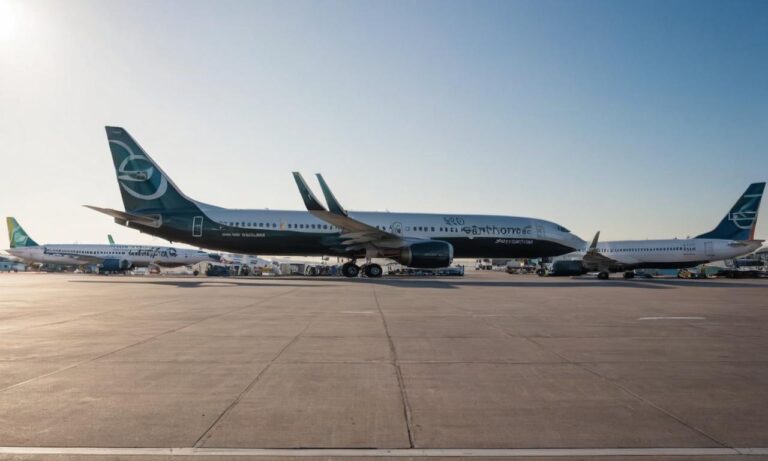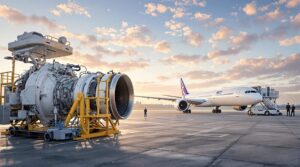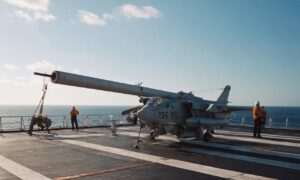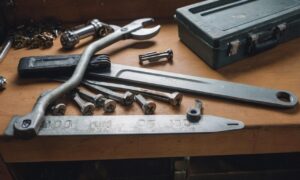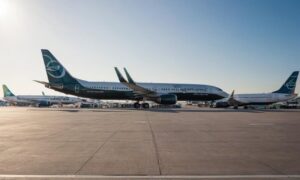When it comes to the fierce competition in the aviation industry, two giants stand out prominently: Boeing with its 737 Max series and Airbus with the A320 Neo. These aircraft represent the cutting edge of technology and innovation, each vying for dominance in the commercial aviation market. In this detailed analysis, we will delve into the key aspects that differentiate the Boeing 737 Max and the Airbus A320 Neo, aiming to provide a comprehensive understanding of their strengths and weaknesses.
Design and Innovation
The Boeing 737 Max and Airbus A320 Neo are both products of extensive research and development, incorporating state-of-the-art technology to enhance fuel efficiency and overall performance. Boeing’s 737 Max boasts advanced aerodynamics and a redesigned engine, while Airbus’ A320 Neo features innovative wingtip devices and fuel-efficient engines. The battle for supremacy in design and innovation is evident, with both manufacturers pushing the boundaries of what modern aircraft can achieve.
Performance and Efficiency
Performance metrics are crucial in determining the success of any commercial aircraft. The Boeing 737 Max and Airbus A320 Neo compete fiercely in terms of fuel efficiency, range, and payload capacity. Airlines worldwide scrutinize these factors to optimize their operations and minimize costs. Boeing’s 737 Max stands out with its impressive range, while Airbus’ A320 Neo emphasizes fuel economy, catering to the evolving needs of the aviation industry.
Safety Features
In the aftermath of challenges faced by the Boeing 737 Max, safety has become a paramount concern for both manufacturers. Both aircraft incorporate advanced safety features and systems designed to enhance passenger and crew well-being. Boeing has implemented comprehensive changes in response to past incidents, while Airbus continues to prioritize safety in the A320 Neo. The commitment to ensuring the highest standards of safety remains a shared goal for both aviation giants.
Market dynamics play a crucial role in the rivalry between the Boeing 737 Max and Airbus A320 Neo. Airlines globally assess factors such as acquisition costs, operational efficiency, and maintenance when deciding between these two aircraft. Understanding customer preferences is key, and both manufacturers actively engage with airlines to tailor their offerings to meet evolving demands, ensuring a competitive edge in the market.
Environmental Impact
As environmental concerns take center stage, aircraft manufacturers are under increased pressure to develop eco-friendly solutions. The Boeing 737 Max and Airbus A320 Neo address these concerns by incorporating fuel-efficient engines and sustainable materials. Reducing carbon emissions and minimizing environmental impact are pivotal considerations for airlines and passengers alike, shaping the future of aviation.
In the perpetual rivalry between the Boeing 737 Max and Airbus A320 Neo, each aircraft brings a unique set of strengths to the table. The battle for supremacy extends across design, performance, safety, market share, and environmental impact. As the aviation industry continues to evolve, these aircraft remain at the forefront, pushing boundaries and shaping the future of air travel.
Cost Considerations
Cost is a critical factor influencing the choice between the Boeing 737 Max and Airbus A320 Neo. Airlines carefully evaluate acquisition costs, maintenance expenses, and overall operational economics. The competition is intense as Boeing and Airbus strive to offer cost-effective solutions to attract airline operators. The total cost of ownership becomes a pivotal point in the decision-making process for airlines navigating the complex landscape of commercial aviation.
Technological Advancements
Technological advancements play a pivotal role in the ongoing rivalry between the Boeing 737 Max and Airbus A320 Neo. Both aircraft continuously integrate cutting-edge technologies such as advanced avionics, connectivity solutions, and data analytics. The race to provide state-of-the-art technology not only enhances operational efficiency but also sets the stage for the next generation of air travel. Airlines factor in these technological features when evaluating the long-term viability of their fleets.
Frequently Asked Questions
For a more comprehensive understanding of the Boeing 737 Max and Airbus A320 Neo, let’s address some frequently asked questions:
| Question | Answer |
|---|---|
| 1. Which aircraft has better fuel efficiency? | Both aircraft compete closely in fuel efficiency, with the Boeing 737 Max excelling in range, while the Airbus A320 Neo emphasizes fuel economy. |
| 2. How do safety features differ between the two? | Both Boeing and Airbus prioritize safety, with Boeing implementing comprehensive changes post-incidents and Airbus maintaining a strong focus on safety in the A320 Neo. |
| 3. What role does environmental impact play in the rivalry? | Both the Boeing 737 Max and Airbus A320 Neo address environmental concerns through fuel-efficient engines and sustainable materials, reflecting a shared commitment to reducing carbon emissions. |
| 4. How do these aircraft cater to customer preferences? | Boeing and Airbus actively engage with airlines to understand and meet evolving customer preferences, shaping their offerings to maintain a competitive edge in the market. |

